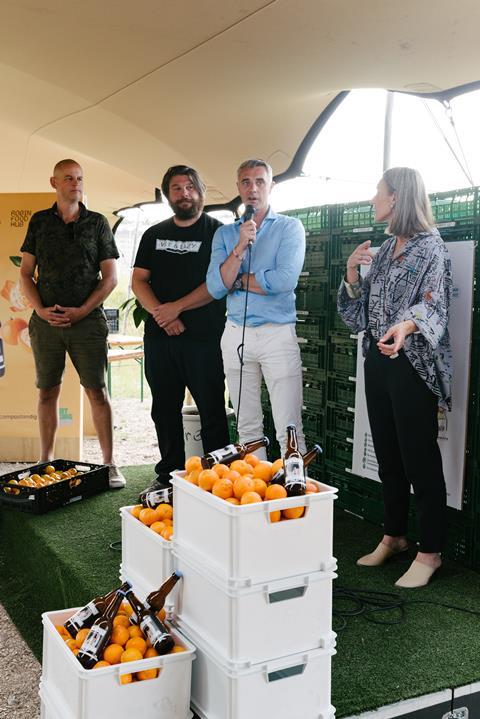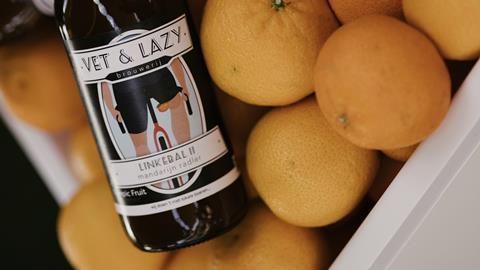Importer is one of four Barendrecht-based companies that have teamed up to extend the lifecycle of its rejected citrus
Dutch importer Olympic Fruit has put the juice from its rejected mandarins to good use, after it teamed up with Rotterdam brewery Vet & Lazy to launch a “deliciously refreshing” radler, known in some circles as a shandy.
The company said the radler, which is called Linkebal II, was “the first of hopefully many collaborations” between four companies based in Barendrecht’s famouse fruit-packing district, where it has its headquarters.
Dineke van Meeuwen, who heads up local venue Café Clementine, was involved in bringing the project to fruition. She explains: “We are convinced that by working together, we can have a positive impact on reducing waste streams and encouraging a circular economy.”
The mandarins used were rejected because of defects in their appearance, which meant they could no longer be sold to clients including supermarkets.
“A shame, of course, because they still taste fantastic,” says Lennart van den Heuvel, director and owner of Olympic Fruit. “This project is proof that sustainability is easily achievable. It feels incredibly rewarding. We are therefore committed to establishing more of these kinds of circular projects that contribute to our sustainability strategy.”

Okke van Beuge of Vet & Lazy was on hand at this week’s launch event to explain what exactly a radler was.
“Are you familiar with mimosas? Orange juice and champagne? It’s kind of like that. Deliciously refreshing, and the carbonation of the beer gives it a little bite. And the bright orange colour just instantly makes you happy,” he noted.
And the name? “‘Linkebal’ is a Dutch term used in bicycle racing,” he adds. “It’s when you take advantage of another person’s qualities.”
The decision to put some of Olympic’s unwanted fruit into another industry’s slipstream certainly seems a popular choice, with two-thirds of a first batch of 3,000 litres apparently distributed already.
After the beer has been made, all that’s left of the mandarins is pulp. Compostandig, a company which develops and builds energy-efficient composting machines for SMEs and the non-profit sector, turns this into compost.
“We often hear stories that you can’t compost citrus fruit,” says Compostandig founder Siemen Cox. “But that couldn’t be further from the truth. The composting process can turn anything that has been alive for a short time into compost. Even mandarin pulp.”
The radler will be available at Café Clementine, among other places, while the compost itself will be used in the café’s vegetable garden.




